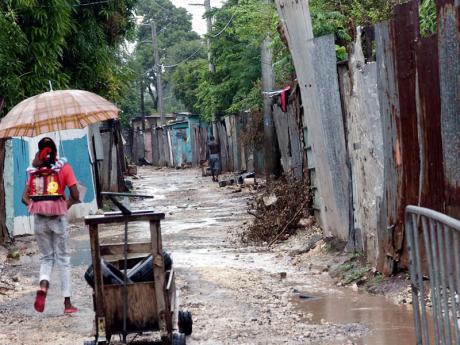Trying to inform, trying even harder to understand
Ali Matalon, Contributor
Growing up in Jamaica has sometimes felt like being caught between a horror film and a tourist brochure of beautiful places you could never imagine existed. The unspoken but overwhelmingly fortified Jamaican class structure has allowed Jamaicans to live in silos, some groups never understanding or even knowing the struggles that others face.
I grew up in a silo that afforded me the ability to remain completely isolated from the way our Jamaican majority lives. To me, this was never good enough nor was it acceptable.
All my life, the luck of my birth has provided me with opportunities some only dream of having and the opportunities that many of the 'haves' never truly take advantage of.
Since I left Jamaica to study in the United States (US), it has been my goal to learn as much as I can - not with the hope of remaining in the US, but with the hope that I could apply that knowledge at home.
This past month, I had the opportunity to share my experiences with my fellow Jamaicans and my Jamaica, with my classmates. The Social Enterprise Institute (SEI) at Northeastern University asked me to help develop a field-practical programme for 35 senior students, alongside the amazing SEI staff.
We were charged with the responsibility of developing an itinerary, arranging meals, accommodations, visits to numerous organisations and much more.
A different type of trip
I was met with significant resistance when I insisted that students would eat sandwiches on the bus for lunch and that they would not be allowed a day to travel to the beach.
I was happy that Jamaicans wanted to show off our 'best' cultural attributes, but the institute was most keen on exposing the students to the parts of Jamaica that tourists don't usually see.
Until we can accept how desperately we need solutions to our perplexing difficulties, we cannot begin to make progress towards developing those solutions. Here were 35 students adamant on making sustainable, substantial and positive change, why would we deny them the opportunity to do so, especially given how mutually beneficial it would be? Nonetheless, committing to this was difficult for me as well.
We are a proud people and feel a sense of shame when others are exposed to our less-developed communities or aged infrastructure. I tried hard to examine my own shame. I discovered that it came primarily from my discomfort with exhibiting poverty and its connection to violence without explaining what work I was doing to lessen the struggle.
What was I doing to help? What was I doing to influence change? These questions are overwhelming. Instead of feeling guilt, I asked organisations that were making an impact to share with us their stories and the knowledge they had gained.
The coupling of our experiences of being with the people who lived in these communities, with working alongside the leaders trying to create change, was more beautiful than any beach I had ever been to and more hypnotising than any tourist brochure.
Let me be clear, this article is not an advertisement for what we have since been doing to affect change, it is a testimonial that understanding, in its truest form, can act as a catalyst all by itself.
Let us stop giving in to lethargy. Let us start breaking down our feelings of being overwhelmed and create targets that, collectively, we can meet.
'We likkle but wi tallawah'. As a proud, unified Jamaican population, let us never underestimate our desire for change, but even more so, our immense ability to achieve it.

